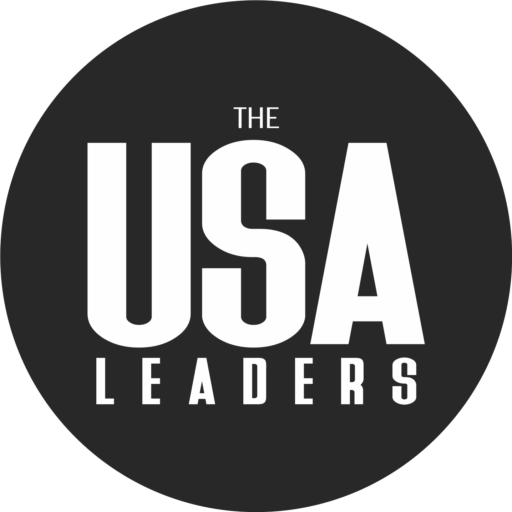Taking on a nursing career is both a noble and challenging journey, marked by the relentless pursuit of care, empathy, and technical proficiency. Nurses stand at the forefront of healthcare, serving as the backbone of patient care and playing a pivotal role in the well-being of those they serve. To excel in this demanding field, a unique combination of skills is essential—skills that go beyond clinical knowledge to encompass the human touch that defines the essence of nursing. This article explores ten essential skills that elevate nurses from proficient practitioners to exemplary caregivers.
1. Compassionate Communication
At the core of nursing practice lies the art of compassionate communication. Effective dialogue between nurses, patients, and their families fosters trust, understanding, and a sense of partnership in the healthcare journey. Beyond conveying medical information, compassionate communication entails actively listening to patients’ concerns, validating their emotions, and providing support with empathy and understanding.
2. Leadership in Nursing
Being a nursing leader extends beyond formal titles. It encompasses the ability to inspire, motivate, and empower both peers and subordinates to strive for excellence in patient care. A leader fosters collaboration, cultivates a culture of continuous improvement, and serves as a role model for professionalism and integrity within the healthcare team.
3. Clinical Competence
Central to nursing excellence is the mastery of clinical competence. Beyond the confines of textbooks and medical equipment lies a tapestry of skills that nurses must master to thrive in their profession. An experienced nurse is distinguished by their profound understanding of medical principles and their ability to apply this knowledge in real-world scenarios. From administering medications to interpreting diagnostic tests, clinical competence ensures that patients receive safe, effective, and evidence-based care.
4. Adaptability and Flexibility
In the dynamic landscape of healthcare, change is the only constant. Nurses must possess the resilience to adapt quickly to evolving patient needs, technological advancements, and organizational priorities. Flexibility in nursing entails taking on new challenges with an open mind, remaining calm under pressure, and finding innovative solutions to unforeseen obstacles without compromising patient safety or quality of care.
5. Critical Thinking and Problem-Solving
Nursing practice is rife with complex clinical scenarios that demand swift and astute decision-making. Critical thinking is the cornerstone of effective problem-solving in nursing, enabling nurses to analyze situations, identify underlying issues, and devise optimal solutions to meet patient needs. Whether faced with a medical emergency or navigating ethical dilemmas, nurses rely on their critical thinking skills to provide competent and compassionate care.
6. Attention to Detail
In the intricate web of healthcare, even the smallest oversight can have significant consequences. Attention to detail is a hallmark of nursing practice, ensuring accuracy and precision in every aspect of patient care. From meticulously double-checking medication dosages to monitoring subtle changes in vital signs, nurses must possess a keen eye for detail to detect potential problems early and prevent adverse outcomes. Cultivating this skill requires diligence, thoroughness, and a commitment to upholding the highest standards of safety and quality in nursing practice.
7. Empathy and Cultural Competence
Every patient brings a unique set of beliefs, values, and cultural backgrounds to their healthcare experience. Empathy and cultural competence are essential skills that enable nurses to deliver patient-centered care that respects and honors diversity. Beyond simply acknowledging cultural differences, empathy allows nurses to connect with patients on a deeper level, understanding their perspectives, concerns, and preferences. Cultural competence goes hand in hand with empathy, equipping nurses with the knowledge and skills to navigate cultural nuances sensitively and effectively, thereby fostering trust and improving health outcomes for all patients.
8. Stress Management
The demands of nursing can be physically, emotionally, and mentally taxing, leading to stress and burnout if not managed effectively. Developing robust stress management strategies is essential for nurses to maintain their well-being and continue delivering high-quality care. This involves recognizing the signs of stress, prioritizing self-care activities, and seeking support from colleagues and mentors when needed. By implementing healthy coping mechanisms such as mindfulness, exercise, and time management techniques, nurses can mitigate the negative impact of stress and sustain their passion and resilience in the face of challenging situations.
9. Team Collaboration
Healthcare delivery is a collaborative endeavor that requires seamless coordination and communication among interdisciplinary teams. Nurses must excel in teamwork, contributing their unique expertise while respecting the contributions of others to achieve common goals. Effective team collaboration fosters synergy, efficiency, and innovation in patient care delivery, ultimately improving outcomes and enhancing the overall quality of healthcare services. By cultivating strong interpersonal skills, fostering open communication, and embracing a spirit of mutual respect and trust, nurses can thrive in collaborative environments and maximize their impact on patient care.
10. Lifelong Learning
The field of healthcare is ever-evolving, with new research findings, technological advancements, and best practices emerging constantly. Lifelong learning is a fundamental skill for nurses to stay current, adapt to changes, and continuously improve their practice. This involves actively seeking out opportunities for professional development, such as attending conferences, pursuing advanced certifications, and engaging in reflective practice. By committing to lifelong learning, nurses demonstrate a dedication to excellence, innovation, and the ongoing advancement of their profession, ensuring that they remain at the forefront of healthcare delivery and continue to make meaningful contributions to patient care.
Conclusion
As we reflect on the essential skills outlined above, it becomes evident that nursing excellence is not merely about proficiency in technical tasks or adherence to protocols. It is about embodying a holistic approach to care that encompasses compassion, clinical competence, leadership, adaptability, critical thinking, attention to detail, empathy, cultural competence, stress management, teamwork, and lifelong learning. By mastering these skills and integrating them into their practice, nurses can truly excel as caregivers and make a profound difference in the lives of their patients. As the healthcare landscape continues to evolve, the demand for skilled and compassionate nurses will only increase, underscoring the importance of investing in ongoing education and professional development to ensure that every patient receives the highest quality of care possible.

















